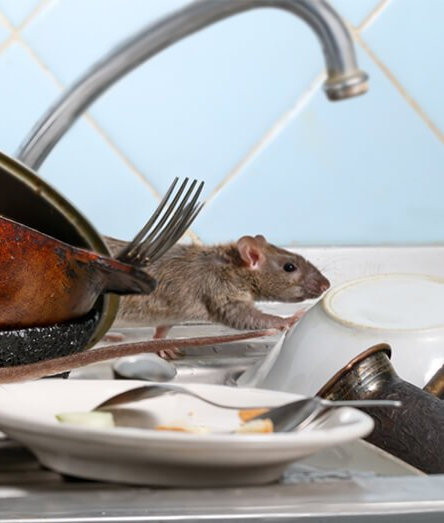Pest Control Policy for ESTATE AGENTS
You're an estate agent. You know the importance of protecting your investment. Your clients trust you to help them find their dream home, and you take that responsibility seriously. So, what happens when pests enter the picture?
It's not something that anyone wants to think about, but the fact is that pests can cause real damage to a property and that's not good for business. Not to mention the fact that pests can be a health hazard, both for you and for your clients.
That's why it's important to have a pest control policy in place. In this article, we'll walk you through the basics of creating a pest control policy for estate agents.
What is a Pest Control Policy?
A pest control policy is a document that outlines the steps an estate agent will take to deal with pests. This can include anything from rodents to insects, and it's an important document to have in place for a number of reasons.
For one, it helps protect your business from pests. Having a policy in place means that you have a plan of action, and you're not just reacting to pests when they appear. It also shows your customers that you're taking their safety seriously, and that you're doing everything you can to keep them protected.
Finally, it's important to have a pest control policy in case of a pest emergency. If there is an infestation at one of your properties, you need to know how you'll deal with it and what steps you'll take to minimise the damage. Having a policy in place will help ensure that everyone is on the same page during this time.
What Should Be Included in an Estate Agent Pest Control Policy?
An effective pest control policy will protect you, your staff, and your customers from pests. It should include a strategy for dealing with pests, as well as a plan for preventing them from entering your premises in the first place.
Your policy should also be reviewed at least once a year, to make sure that it's still fit for purpose.
A good pest control policy will help to deter pests from entering your property in the first place, and will also give you a clear plan of action to follow if they do manage to get in.

The Risks and Liabilities of Not Implementing a Pest Control Policy
Pests can cause damage to your property. Without a pest control property in place, you risk the safety of your buildings and the people inside them. For example, a rodent gnawing on electrical wiring can cause a fire, while an infestation of insects can damage furniture, walls, ceilings, and more.
Also, pests can be a health hazard. Pests can spread diseases, parasites, bacteria, and more. It is therefore important to have a pest control policy in order to tackle this, as well as to protect the health of your employees and your clients.
Then there’s the issue of liability. As an estate agent, you might be thinking that a pest control policy is not necessary. After all, you're not the one responsible for the property, right? Wrong.
If a tenant moves into a property and finds that it's infested with pests, they're going to hold you responsible. And if they decide to take legal action, you could be facing some serious financial repercussions.
Not only that, but if a property is found to have an infestation, it can damage your reputation as an estate agent. Implementing a pest control policy shows tenants that you're proactively trying to avoid infestations, and that you're serious about providing them with a safe and comfortable home.
When it comes to pest control, it's important for estate agents to have a policy in place. This will help to protect both the estate agents and the clients they work with. There are a number of things that estate agents can do to protect themselves from pests, and it's important to make sure that they are doing everything they can to keep pests out.
For help dealing with any pest issues you may be having, get in touch with our experts below...
Contact Us
We will get back to you as soon as possible.
Please try again later.
-
How to Develop an Effective Pest Control Policy for Schools
Read MoreIn this article, we'll outline the key components of an effective school pest control policy. We'll also provide some tips on how to implement and enforce your policy...
-
Restaurant Pest Control
Read MoreRestaurants can be the perfect breeding ground for pests, and if they're not controlled, they can quickly become a problem...
-
Estate Agents Pest Control
Read MoreYou're an estate agent. You know the importance of protecting your investment. So, what happens when pests enter the picture?
AREAS WE COVER








